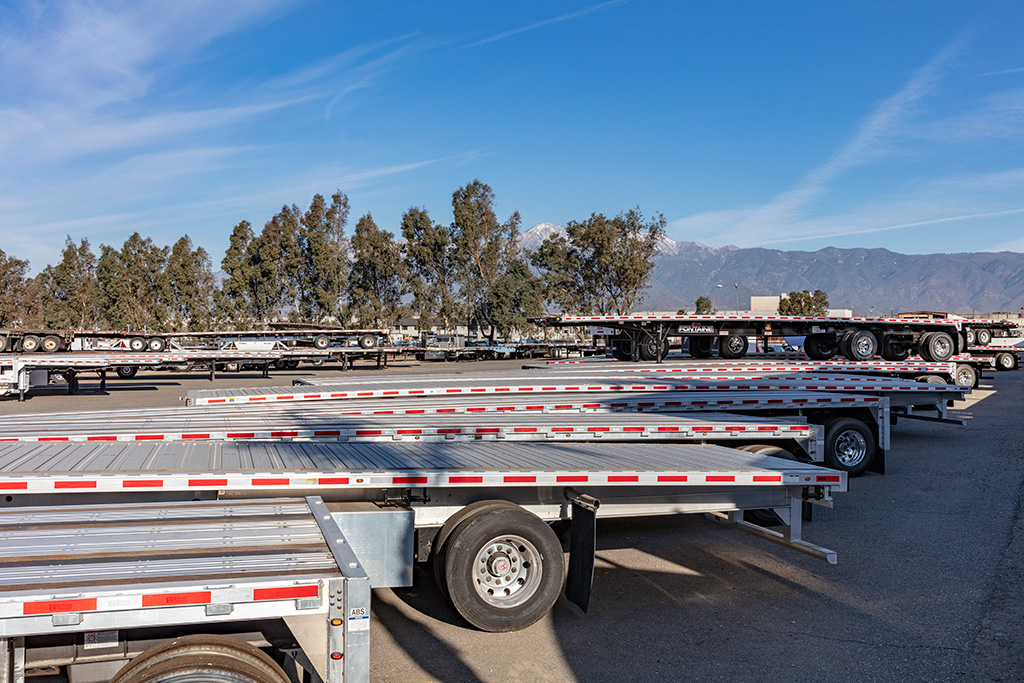Week, Month, or Yearly? How to Pick the Right Semi-Trailer Rental Term

When it comes to renting semi-trailers, one of the first questions you’ll need to answer is how long you actually need the trailer. Choosing the right rental term isn’t just about price — it impacts flexibility, availability, and even how smoothly your operations run. Below, we’ll break down the differences between weekly, monthly, seasonal, and long-term rentals so you can make the best decision for your business.
Why Rental Terms Matter
Semi-trailers are critical assets for businesses in logistics, construction, agriculture, retail, and beyond. Picking the wrong rental term can leave you overpaying, stuck without equipment during peak demand, or scrambling for replacements. The key is to match the term to your project timeline, freight demand, and budget.
- Weekly Rentals
- Weekly rentals are ideal if you only need a trailer for a quick haul, a local event, or as a stopgap when another unit is down.
- Higher per-day rates compared to longer terms, but worth it for the short commitment.
- Tip: Weekly contracts often have limited availability during busy months, so reserve early if you know you’ll need one.
- Monthly Rentals
- Seasonal contracts (3–6 months) are a smart move for companies preparing for holiday retail, harvest season, or manufacturing surges.
- Lower per-day rates than short-term rentals, and less risk of scrambling for equipment during peak months.
- Tip: Seasonal terms help secure availability in advance, which is critical when demand outpaces supply.
- Long-term Rentals
- Year-long or multi-year rentals are designed for companies with ongoing freight needs that don’t want the responsibility of purchasing.
- These contracts typically provide lower rates compared to short, seasonal, or monthly rentals.
- Tip: Long-term rentals might also include the option to convert to a lease or a lease purchase if your needs change.
How to Choose the Right Term
When deciding between weekly, monthly, seasonal, or long-term semi-trailer rentals, consider:
- Project Duration: Match the contract to how long you realistically need the trailer.
- Budget: Balance per-day cost vs. total spend.
- Demand Predictability: If your business has seasonal peaks, plan ahead with a longer rental term.
- Flexibility Needs: If your situation could change quickly, shorter terms may be worth the higher daily rate.
The right rental term depends on your timeline, budget, and workload predictability. Weekly rentals provide quick fixes, monthly terms balance flexibility with cost savings, and seasonal rentals give you peace of mind during peak demand. By planning ahead and aligning your rental term with your actual needs, you’ll save money, avoid downtime, and keep your operations moving smoothly.
Need a reliable semi-trailer rental? From short-term jobs to longer hauls, Great Western Trailer has options to keep your business moving. Explore our rental fleet and find the right trailer for your needs here.
About Great Western Trailer
Since 1997, Great Western Trailer has been a trusted name in the semi-trailer industry. We proudly serve customers across 10 locations in the United States, offering Sales, Rentals, Leasing, Parts, Service, and Repairs.
Find us at: Phoenix, AZ – Fontana, CA – Dearborn, MI – Albuquerque, NM – Oklahoma City, OK – Tulsa, OK – Grants Pass, OR – Dallas, TX – Houston, TX – Salt Lake City, UT.

